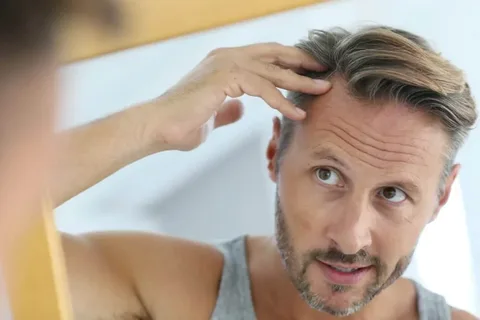Dubai has emerged as a global hub for medical tourism, particularly in the field of cosmetic and reconstructive surgeries. Among the most sought-after procedures is hair transplant surgery, a solution for individuals facing hair loss. With advancements in technology, surgical techniques, and a growing demand for natural-looking results, the future of Hair Transplant in Dubai is poised for significant transformation. This article explores the trends, innovations, and what lies ahead for this burgeoning industry.
Current State of Hair Transplant Surgery in Dubai
Hair transplant surgery in Dubai has evolved dramatically over the past decade. The city is home to numerous state-of-the-art clinics offering various hair restoration procedures, including Follicular Unit Extraction (FUE) and Follicular Unit Transplantation (FUT). These methods have gained popularity for their effectiveness and minimal invasiveness.
High Standards of Care: Dubai’s healthcare system is known for its high standards and stringent regulations. The emirate boasts some of the best-trained surgeons in the field, ensuring that patients receive top-quality care. This reputation has attracted patients from across the globe seeking hair restoration solutions.
Technological Advancements
- Robotic Assistance: One of the most significant innovations in hair transplant surgery is the introduction of robotic systems. Robots, like the ARTAS system, assist surgeons in identifying and extracting hair follicles with precision. This technology enhances the accuracy of graft placement, resulting in more natural-looking outcomes and reduced recovery times.
- Advanced Imaging Techniques: High-resolution imaging technologies, including 3D mapping, are becoming more prevalent in hair transplant clinics. These tools allow surgeons to create a customized treatment plan tailored to each patient’s unique hair loss pattern, ensuring optimal results.
- Artificial Intelligence: AI-driven software is increasingly used to analyze hair loss patterns and predict future hair loss. This technology enables clinics to offer personalized solutions and develop proactive treatment plans, ultimately improving patient satisfaction.
- Stem Cell Research: Emerging research into stem cells holds promise for the future of hair restoration. Stem cell therapy may offer a non-surgical alternative for stimulating hair growth, making it an exciting prospect for those hesitant to undergo traditional hair transplant procedures.
Growing Popularity of Non-Surgical Options
While surgical methods remain effective, there is a noticeable shift towards non-surgical options in hair restoration. Treatments such as Platelet-Rich Plasma (PRP) therapy and low-level laser therapy (LLLT) are gaining traction. These minimally invasive options appeal to individuals seeking to avoid surgery while still achieving noticeable results.
PRP Therapy: This procedure involves extracting a patient’s blood, processing it to concentrate the platelets, and then injecting it into the scalp. The growth factors in PRP stimulate hair follicles, promoting natural hair regrowth.
LLLT: This non-invasive treatment uses laser light to stimulate hair follicles and improve hair density. It is painless, requires no downtime, and can be combined with other treatments for enhanced results.
Increasing Patient Awareness and Education
As the demand for hair transplant surgeries grows, so does the importance of patient education. Clinics in Dubai are investing in comprehensive consultation processes that inform patients about their options, the procedures involved, and expected outcomes.
Transparency and Realistic Expectations: Potential patients are encouraged to research their options thoroughly and consult multiple clinics. This empowers them to make informed decisions regarding their hair restoration journey, ultimately leading to higher satisfaction rates.
Global Trends Influencing Dubai’s Hair Transplant Industry
- Cosmetic Awareness: There is a growing global trend towards cosmetic procedures, driven by social media and influencer culture. Individuals are increasingly concerned about their appearance, leading to higher demand for hair restoration solutions. Dubai, as a cosmopolitan city, is well-positioned to cater to this demand.
- Travel for Treatment: Medical tourism is expected to continue growing, with Dubai as a prime destination. Patients from Europe, the Middle East, and beyond are attracted to the city’s advanced healthcare facilities and the opportunity to combine treatment with a vacation.
- Cultural Shifts: Changing societal norms around beauty and appearance are contributing to the rising acceptance of hair transplant surgery. As more individuals openly discuss their experiences, the stigma associated with cosmetic procedures is diminishing.
Regulatory and Ethical Considerations
As the industry evolves, regulatory bodies in Dubai are closely monitoring hair transplant practices to ensure patient safety and ethical standards. Clinics must adhere to strict guidelines to maintain their licenses, ensuring that patients receive high-quality care.
Ethical Marketing: Clinics are encouraged to engage in transparent marketing practices, avoiding misleading claims. Educating patients about realistic outcomes is essential for maintaining trust and satisfaction.
Conclusion
The future of hair transplant surgery in Dubai is bright, with technological advancements, increasing patient awareness, and a growing demand for both surgical and non-surgical solutions. As the industry continues to evolve, patients can expect more personalized, effective, and innovative treatments. With Dubai’s reputation as a leader in medical tourism, it is poised to remain at the forefront of the hair restoration revolution, helping individuals regain their confidence and achieve their desired appearance.



